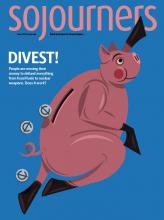AS AN occasional participant in a book group, I’m happy to report that the wine at the last one was pretty good. Also the fellowship, the spirited conversation, and, finally, before we ran out of time, discussion about the book, which consisted mainly of how most of us didn’t finish it, or start it. In my case, however, I couldn’t put it down.
It was The Lost City of Z, a recounting of an intrepid explorer’s frightening ordeals in the unforgiving jungles of the Amazon, which ultimately ended when he succumbed to cannibalism. It was a chilling read, one that convinced me to confine my travels exclusively to the continental United States. Because if there’s anything that ruins a good walk, it’s being eaten by your own species. According to the book, at the turn of the last century certain tribes in remote South America believed they could spiritually cleanse themselves by devouring their enemies. (Fortunately, that practice has died out, except for in a few red states during primary season.)
I read every word of that book, usually with the covers pulled tightly around me and all the lights on, while making sure that I didn’t appear delicious to anyone in the vicinity.
Read the Full Article

